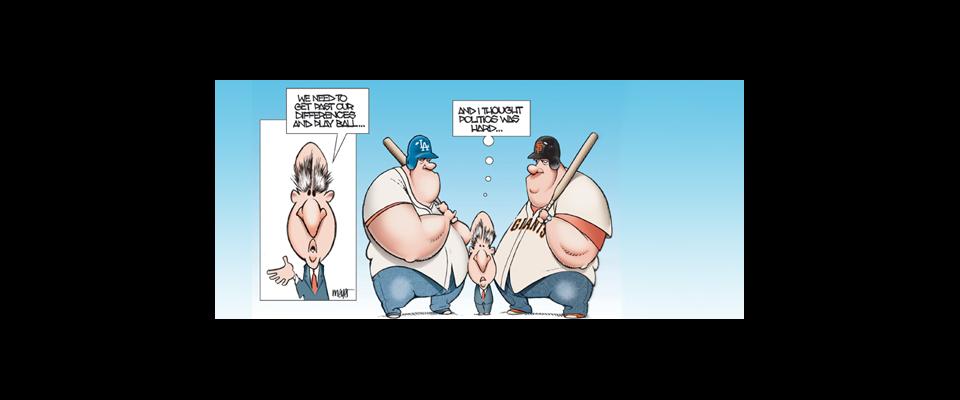Ideas, not things, are the engines that cities and nations increasingly depend on for lucre. With the obvious exception of oil, nothing in the past 25 years has shown the potential to transform tomorrow more completely than the creation of stories or services rather than goods—and the technologies with which they are delivered to their audiences. Canada and Hong Kong have blossomed as centers for moviemaking. North Carolina wants to be an entertainment production Mecca. A goodly chunk of loot would be Lost in Hawaii if it didn’t have its North Shore cash cow to milk. But it’s modern-day L.A. that is the archetype of the “Ideopolis,” a word coined by New Republic senior editor (and Berkeley grad) John Judis to describe how postindustrial capitalism is changing the way we live and work. “Instead of a strict division between services and manufacturing, manufacturing often takes the form of the production of ideas, designs, and programs. The Ideopolis is also a place particularly conducive to a kind of center- left politics, liberal on social issues, moderate to liberal on fiscal matters,” Judis says.
“The five-county, Southern California area is still the biggest concentration of manufacturing employment in the country,” cautions UCLA economist Ryan Ratcliff, but his colleague Edward Leamer, who has extensively researched the commerce of creativity, claims that today Mickey Mouse trumps Boeing, and Dreamworks is the new U.S. Steel. Kids today set their sights not on a stable manufacturing job like those of generations past but on “neuro-factoring” employment, as Leamer calls it—the kind of work that depends on how original your ideas can be, how much you can master technology, and how deft you are at personal networking to get your ideas into the new marketplace. It’s a bottom-up workforce, so different from the hierarchical model of the industrial revolution.
California was incubator to this brave new world. The seeds were planted when the film industry invented itself in the ’20s. And no American industry has retained a continuous domination over the world like L.A.’s entertainment juggernaut, all based on an end product that, says UCLA’s Howard Suber, author of The Power of Film, “has no form other than the resonance it leaves in a person’s imagination.”




















